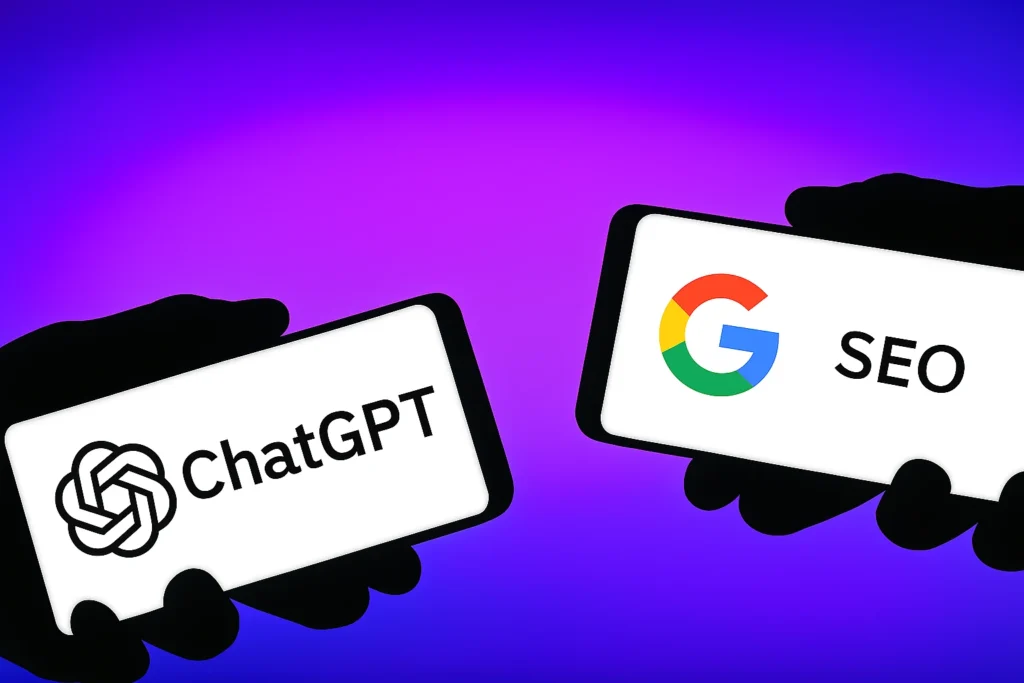Master the power of ChatGPT for SEO and learn how to streamline keyword research, metadata creation, and content planning using AI tools in 2025. Boost rankings smarter, not harder.
According to a survey by HubSpot, 75% of bloggers and SEO experts believe AI will be able to perform several SEO tasks in the near future.
If you’re an SEO pro, it’s high time you started adapting AI and using it as an assistant to boost SEO quality. Let’s explore how to use ChatGPT for SEO in 2025 with proven AI prompts to boost your search engine rankings. This guide shows exactly how to generate keywords, plan content, and optimize metadata using ChatGPT.
How to use ChatGPT for SEO
Whether you’re managing a niche blog or a business website, ChatGPT can accelerate your SEO efforts and reduce manual tasks.
Many marketers ask: Does ChatGPT affect SEO? The answer is yes, positively, when used strategically. With the right prompts, you can streamline content generation, optimize metadata, and even generate structured data in seconds.
Some of the things you can do with ChatGPT for SEO:
- Generate related keywords and LSI terms
- Create compelling title tags for your pages
- Write meta descriptions that boost CTR
- Get help with comprehensive content planning
- Identify trending content topics
- Create FAQ pages and schema
- Understand and match search intent
- Generate schema markup
Additionally, you can use ChatGPT to conduct competitor analysis, group keywords based on semantic relevance, create topic clusters, generate headline variations, craft detailed content outlines, identify websites for guest post outreach, and optimize existing content.
Here are the best ChatGPT prompts for SEO
Using smart ChatGPT prompts is the key to unlocking its full SEO potential. Here are proven examples that work:
- “List 20 long-tail keywords for [your niche] with search intent explained and difficulty level.”
- “Create a detailed blog post outline targeting the keyword ‘[insert keyword]’ with H2 and H3 structure.”
- “Write 5 meta description variations for a post about ‘[insert topic]’ under 155 characters.”
- “Generate a topic cluster for ‘[main keyword]’ with 10 supporting article ideas.”
- “Identify search intent gaps for the keyword ‘[target keyword]’ that competitors miss.”
Want to go deeper? Check our ChatGPT money-making guide for even more prompt ideas.
How ChatGPT helps with SEO content strategy
One of the strongest use cases of ChatGPT is strategic content planning. It can identify keyword clusters, generate article ideas, and ensure your content satisfies search intent. Use it to build topic clusters around core keywords and organize your content to improve internal linking, a critical SEO factor.
I use this content planning workflow:
- Start with seed keywords from your niche
- Ask ChatGPT to expand into related topics
- Group keywords by search intent
- Create content calendars with publishing priorities
- Map internal linking opportunities
Check our AI niche guide if you’re starting a new SEO project from scratch.
ChatGPT for Keywords and Metadata
Need title tags or meta descriptions that convert? ChatGPT delivers fast. Simply ask: “Generate a title and meta description for a blog post about ‘[keyword]’ optimized for click-through rate”. It also helps you brainstorm LSI and semantic keywords to avoid keyword stuffing while maintaining topical relevance.
Advanced Metadata Prompt: “Create 10 title tag variations for ‘[topic]’ that include power words, stay under 60 characters, and target ‘[primary keyword]’.”
Using ChatGPT Marketing Techniques
Many marketers now integrate ChatGPT for marketing tasks such as ad copy, landing page headlines, and lead magnets. It’s a productivity booster that complements traditional SEO tools while reducing costs.
Marketing Integration Ideas:
- Generate email subject lines from blog titles
- Create social media snippets for content promotion
- Write YouTube descriptions for video SEO
- Develop Pinterest pin descriptions
- Craft meta descriptions for product pages
Don’t forget to check our top GPT tools list to expand your toolkit.
ChatGPT SEO Cheat Sheet
For quick wins, keep a personal ChatGPT cheat sheet for SEO. Include prompt templates for keyword research, content outlines, FAQ generation, and schema markup. This will save hours of work while keeping your workflow consistent and scalable.
Essential Prompt Templates:
For Keyword Research: “Generate 30 keywords related to ‘[seed keyword]’ grouped by user intent (informational, commercial, transactional, navigational).”
For Content Outlines: “Create a comprehensive outline for a 2000-word article about ‘[topic]’ including introduction, main sections with subheadings, and conclusion with CTA.”
For Technical SEO: “Generate FAQ schema markup for these 5 questions: [list questions]. Format as JSON-LD.”
For Content Optimization: “Analyze this paragraph and suggest improvements for SEO while maintaining readability: [paste content]”
Want to create digital products? Explore our guide on selling prompts on Etsy.
Step-by-Step Implementation Guide
Step 1: Keyword Discovery Start by feeding ChatGPT your main topic and asking for keyword variations. Use prompts like: “Generate 50 keyword ideas for a website about [your niche] including long-tail variations.”
Step 2: Content Planning Create content clusters using: “Build a content silo structure for the topic ‘[main keyword]’ with 5 pillar pages and 20 supporting articles.”
Step 3: Content Creation Generate outlines first, then expand: “Create a detailed outline for ‘[keyword]’ that answers all possible user questions.”
Step 4: Optimization Enhance existing content: “Suggest 10 ways to improve this article for SEO: [paste URL or content]”
Step 5: Technical Elements Create all technical elements: “Generate title tag, meta description, and H1 for a page about ‘[topic]’.”
Common mistakes to avoid
- Publishing raw ChatGPT content without editing or fact-checking
- Ignoring search intent and user needs
- Over-optimizing with keyword stuffing
- Creating thin content without unique value
- Skipping human review and brand voice adjustments
Advanced ChatGPT SEO strategies
First thing you could do it to use ChatGPT for SEO Audit: Ultimate Guide, Tips & Prompts
Local SEO Enhancement: “Generate 20 local SEO content ideas for a [business type] in [city] including location-specific keywords and topics.”
E-E-A-T Optimization: “Suggest ways to demonstrate expertise, experience, authoritativeness, and trustworthiness for an article about ‘[topic]’.”
Featured Snippet Optimization: “Rewrite this content to target position zero for the query ‘[target keyword]’: [paste content]”
Measuring Success
Track these metrics to gauge ChatGPT SEO effectiveness:
- Organic traffic growth
- Keyword ranking improvements
- Click-through rates from SERPs
- Time on page and engagement metrics
- Conversion rates from organic traffic
Next Steps
Start implementing ChatGPT for SEO today with these action items:
- Create your prompt library using templates from this guide
- Generate your first keyword cluster
- Optimize one existing page’s metadata
- Create an FAQ section for your top-performing content
- Build a content calendar for the next month
Remember: ChatGPT is a tool that amplifies your SEO expertise, not replaces it. Combine AI efficiency with human creativity for best results.


